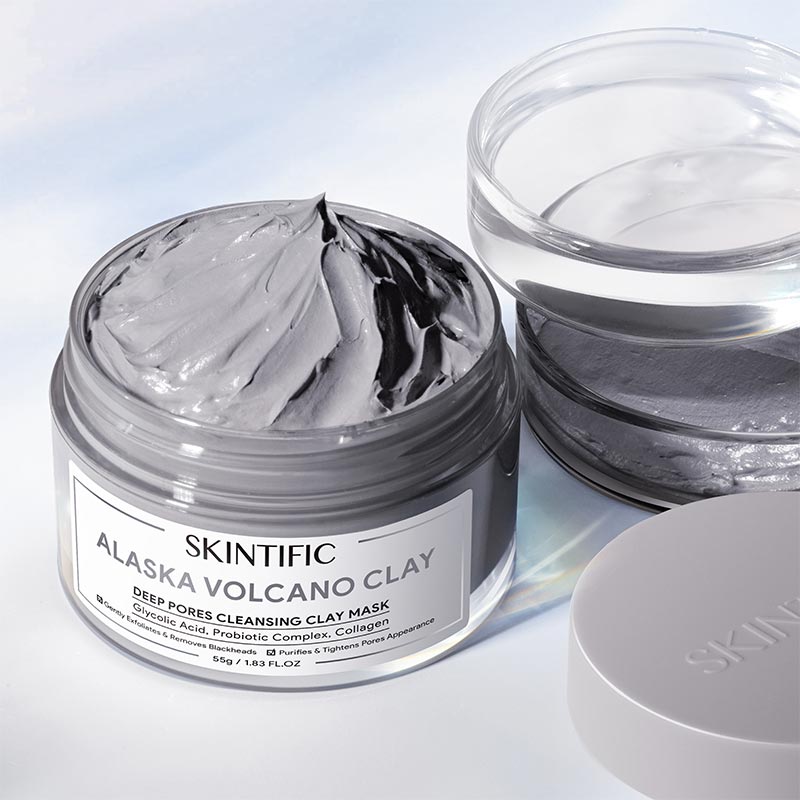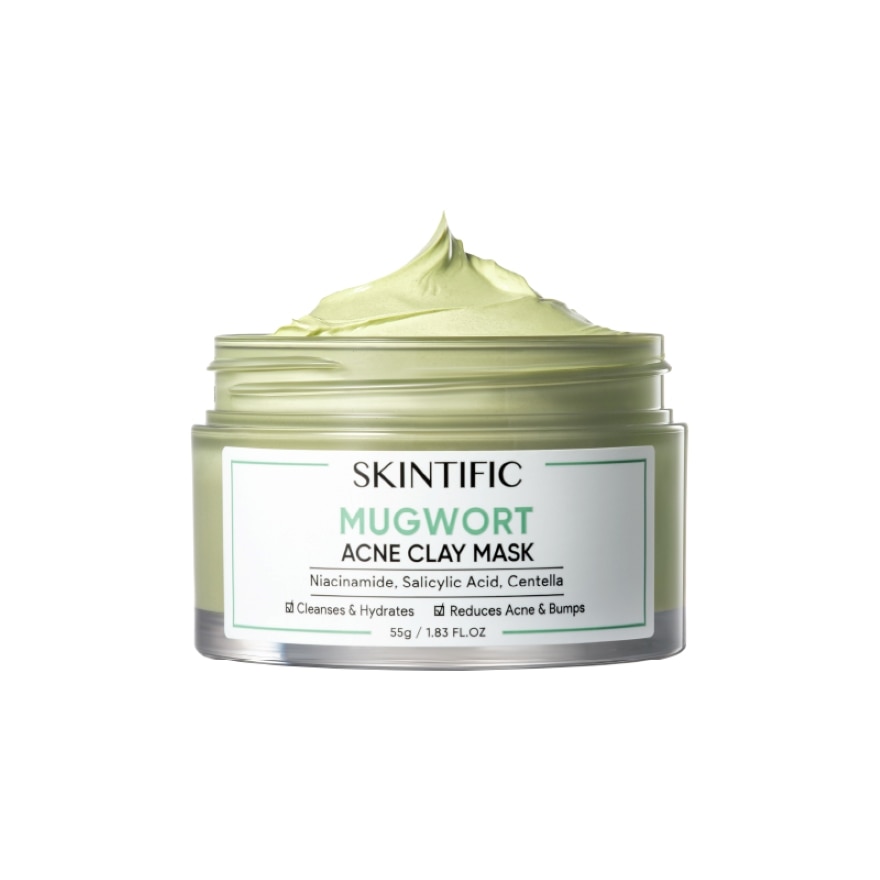Clay Mask For Pores: The Ultimate Guide To Achieving Clear And Tightened Skin
Clay mask for pores has become one of the most popular skincare solutions for those seeking to improve their skin texture and reduce the appearance of enlarged pores. Whether you're dealing with oily skin, blackheads, or simply wanting to refine your complexion, incorporating a clay mask into your routine can make a significant difference. This comprehensive guide will walk you through everything you need to know about clay masks and how they can transform your skin.
As skincare enthusiasts, we often search for products that deliver visible results. Clay masks have long been celebrated for their ability to detoxify and purify the skin, making them an essential addition to any skincare regimen. In this article, we'll explore the science behind clay masks, their benefits, and how to use them effectively.
This article will also provide expert insights and recommendations to ensure you make the right choice for your skin type. Whether you're a beginner or a skincare veteran, this guide will equip you with the knowledge to harness the power of clay masks for healthier-looking skin.
Read also:Unveiling The Mystery Loch Ness Monster Sightings
Table of Contents
- Introduction to Clay Masks
- Benefits of Clay Mask for Pores
- Types of Clay Masks
- Best Clay for Pore Minimization
- How to Use Clay Mask for Pores
- Tips for Effective Clay Mask Application
- Common Mistakes to Avoid
- Clay Mask for Different Skin Types
- Scientific Evidence Behind Clay Masks
- Frequently Asked Questions
Introduction to Clay Masks
Clay masks have been used for centuries across various cultures due to their natural cleansing and purifying properties. These masks are formulated with natural clays that draw out impurities, excess oil, and toxins from the skin, leaving it feeling clean and refreshed. When it comes to clay mask for pores, the results can be transformative.
Clay masks work by absorbing excess sebum, which is one of the primary causes of enlarged pores. By reducing oil buildup, clay masks help minimize the appearance of pores and prevent issues like blackheads and acne. Additionally, they provide exfoliation and detoxification, giving your skin a smoother texture.
Why Choose Clay Masks?
Here are some reasons why clay masks are a popular choice for skincare enthusiasts:
- They are rich in minerals that nourish the skin.
- They help control oil production, making them ideal for oily and combination skin.
- They offer a non-invasive way to detoxify and rejuvenate the skin.
Benefits of Clay Mask for Pores
Using a clay mask for pores can yield numerous benefits for your skin. Let's explore some of the key advantages:
1. Reduces Enlarged Pores
Clay masks are highly effective at minimizing the appearance of enlarged pores. By removing excess oil and dirt, they prevent pores from becoming clogged and stretched out.
2. Controls Oil Production
For those with oily skin, clay masks are a game-changer. They help regulate sebum production, leaving your skin matte and less prone to shine.
Read also:Primelash Mascara Superdrug A Comprehensive Guide To Achieve Flawless Lashes
3. Detoxifies the Skin
Clay masks draw out toxins and impurities, giving your skin a deep cleanse. This detoxifying effect can improve overall skin health and radiance.
Types of Clay Masks
Not all clay masks are created equal. Different types of clay offer unique benefits, so it's essential to choose the right one for your skin type and concerns.
Bentonite Clay
Bentonite clay is known for its powerful detoxifying properties. It is particularly effective for oily and acne-prone skin, as it helps absorb excess oil and reduce inflammation.
French Green Clay
French green clay is rich in minerals and is excellent for purifying and toning the skin. It is suitable for all skin types, including sensitive skin, and can help reduce the appearance of pores.
Kaolin Clay
Kaolin clay is gentle and is often used in masks for sensitive or dry skin. It provides mild exfoliation and helps improve skin texture without causing irritation.
Best Clay for Pore Minimization
When it comes to minimizing pores, French green clay and bentonite clay are often considered the best options. Both clays are effective at drawing out impurities and reducing the size of pores. However, your choice should depend on your specific skin type and concerns.
How to Use Clay Mask for Pores
Using a clay mask correctly is essential to achieve the desired results. Follow these steps for the best experience:
Step 1: Cleanse Your Skin
Start by cleansing your face to remove any dirt or makeup. This ensures that the clay mask can penetrate the skin effectively.
Step 2: Apply the Mask
Apply a thin, even layer of the clay mask to your face, avoiding the eye area. Leave it on for 10-15 minutes or until it dries completely.
Step 3: Rinse Thoroughly
Use lukewarm water to rinse off the mask, making sure to remove all traces of clay. Pat your skin dry with a clean towel.
Tips for Effective Clay Mask Application
To get the most out of your clay mask for pores, consider these tips:
- Exfoliate your skin before applying the mask to enhance its effectiveness.
- Use a facial brush for even application and better results.
- Follow up with a hydrating moisturizer to prevent skin dryness.
Common Mistakes to Avoid
While clay masks are beneficial, there are a few mistakes to avoid:
- Overusing clay masks, as it can lead to dryness and irritation.
- Leaving the mask on for too long, which can cause excessive dryness.
- Using hot water to rinse the mask, which can damage the skin barrier.
Clay Mask for Different Skin Types
Clay masks can be tailored to suit various skin types:
For Oily Skin
Opt for bentonite or French green clay masks to control oil production and minimize pores.
For Dry Skin
Choose a kaolin clay mask and follow up with a rich moisturizer to hydrate your skin.
For Sensitive Skin
Look for gentle clay masks formulated for sensitive skin and perform a patch test before use.
Scientific Evidence Behind Clay Masks
Clay masks have been studied for their skincare benefits. Research shows that clays like bentonite and French green clay are effective at absorbing oil and reducing inflammation. These properties make them ideal for addressing pore-related concerns.
Frequently Asked Questions
Q: How often should I use a clay mask for pores?
A: It's recommended to use a clay mask once or twice a week, depending on your skin type and needs.
Q: Can clay masks cause breakouts?
A: In some cases, clay masks may cause initial breakouts as they draw out impurities. However, this is usually temporary and subsides with continued use.
Q: Are clay masks suitable for all skin types?
A: Yes, clay masks can be formulated for all skin types. However, it's important to choose the right type of clay based on your specific skin concerns.
Kesimpulan
In conclusion, clay masks are a powerful tool for addressing pore-related issues and improving overall skin health. By understanding the different types of clay and how to use them effectively, you can achieve clearer, more refined skin. Remember to choose a clay mask that suits your skin type and concerns, and always follow up with proper hydration.
We encourage you to share your clay mask experiences in the comments below and explore our other skincare articles for more tips and insights. Your journey to healthier skin starts here!


